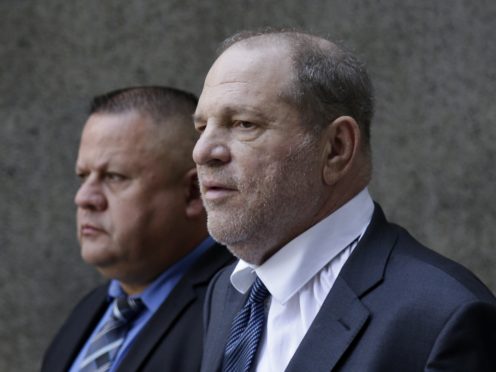Harvey Weinstein has lost a long-shot bid to move his sexual assault trial out of New York City.
A five-judge panel of the state Supreme Court’s Appellate Division rejected the movie mogul’s concerns that he would not get a fair trial in the world’s media capital.
The court issued the decision after reviewing written submissions from Weinstein’s lawyers and prosecutors. The panel did not give a reason for the ruling, limiting its input on the matter to three short sentences.
Weinstein’s lawyers suggested in court papers that the trial be moved east to the Long Island suburbs or 150 miles north to Albany.
Weinstein, 67, is due to stand trial in Manhattan in January on charges he raped a woman in a hotel room in 2013 and performed a forcible sex act on a different woman in 2006.
He has pleaded not guilty and is free on 1 million US dollar bail. He maintains any sexual activity was consensual and his lawyer, Donna Rotunno, has said she thinks “the case itself is weak”.
Motions to change the location of a trial are rarely granted, but Weinstein’s lawyers argued it should have been in his case given a “circus-like atmosphere” and “hysteria” fuelled by news reports and social media posts.
In court papers, they noted that their client’s name was mentioned online on the New York Post’s gossip column Page Six more than 11,000 times.
“It is safe to say that New York City is the least likely place on Earth where Mr Weinstein could receive a fair trial, where jurors could hear evidence, deliberate and render a verdict in an atmosphere free of intimidation from pressure to deliver a result that the politicians, the activists, the celebrities and the media demand,” the lawyers wrote.
Assistant district attorney Harriett Galvin countered that Weinstein and his legal and publicity teams were fuelling some of the media attention surrounding his case.
“From the beginning, the defendant’s lawyers have contributed to the media coverage they now complain about by making extrajudicial statements about the case, portraying the defendant as a scapegoat who has been targeted by the ‘Me Too’ movement, this employing the well-worn strategy of trying his case outside the courtroom,” Ms Galvin wrote in court papers.
Weinstein’s lawyers filed the change of venue motion in August, just weeks before his trial was scheduled to get under way. At the time, prosecutors said the request was a “transparent attempt to delay the proceedings”.
But the trial was delayed anyway after prosecutors had Weinstein arraigned on a new indictment so that they could bolster their case with evidence from actress Anabella Sciorra, who has accused him of a 1993 rape.
Sciorra, known for a role on The Sopranos, is not one of the women whose allegations led to criminal charges against Weinstein, but prosecutors have said that her evidence is vital to supporting charges alleging he is a sexual predator who committed sex crimes against multiple women.
